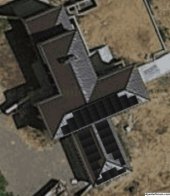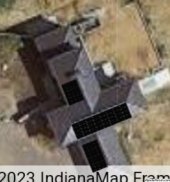DIYsolarKY
New Member
Been reading on the forum for some time.
Planning a scary expensive solar project.
Family uses about 100 kW a day on average.
We don't have a backup generator. But that is one of our priorities is having backup power. We lose power regularly with fall, winter, spring storms.
I live in north western Kentucky. PVWatts uses Evansville, IN for my location which is about 1 hr away.
House is 1 year old, way too big, 5 girls at home, not counting wife. Lots of current and future power needs.
My local utility offers 1:1 net metering.
I am probably too busy to consider this as a DIY project. That is a lot of panels even though I don't shy away from most home projects.
I have a few local solar installers offering me different products.
Both offering roof based panels ( I have a standing seam roof).
Basically both around 25 kw in size three different areas on roof for panels. Prices are similar ~75K without any batteries. So a massive investment. That doesn't include the federal 30% tax credit obviously but it's not like it is a rebate.
One installer is offering microinverters from enphase -IQ8A- with 25 yr warranty. They have been around since 2003 with great track record for service.
Other installer is offering similar panels with solar edge optimizers and inverters or tesla inverters. They are also a big regional installer with lots of positive reviews
Both I think would bend on me asking for a different design. Both have done solark, neither have done an eg4. Both have been in business a long time and wary of newer, less trustworthy products. They both expressed having had to handle warranty claims on bad products.
Installers showed me real time data on the tesla and enphase apps and they look obviously really sleek and impressive from the phone.
Recs for the best scalable setup for inverters. To add batteries now or in future as a backup?
Planning a scary expensive solar project.
Family uses about 100 kW a day on average.
We don't have a backup generator. But that is one of our priorities is having backup power. We lose power regularly with fall, winter, spring storms.
I live in north western Kentucky. PVWatts uses Evansville, IN for my location which is about 1 hr away.
House is 1 year old, way too big, 5 girls at home, not counting wife. Lots of current and future power needs.
My local utility offers 1:1 net metering.
I am probably too busy to consider this as a DIY project. That is a lot of panels even though I don't shy away from most home projects.
I have a few local solar installers offering me different products.
Both offering roof based panels ( I have a standing seam roof).
Basically both around 25 kw in size three different areas on roof for panels. Prices are similar ~75K without any batteries. So a massive investment. That doesn't include the federal 30% tax credit obviously but it's not like it is a rebate.
One installer is offering microinverters from enphase -IQ8A- with 25 yr warranty. They have been around since 2003 with great track record for service.
Other installer is offering similar panels with solar edge optimizers and inverters or tesla inverters. They are also a big regional installer with lots of positive reviews
Both I think would bend on me asking for a different design. Both have done solark, neither have done an eg4. Both have been in business a long time and wary of newer, less trustworthy products. They both expressed having had to handle warranty claims on bad products.
Installers showed me real time data on the tesla and enphase apps and they look obviously really sleek and impressive from the phone.
Recs for the best scalable setup for inverters. To add batteries now or in future as a backup?







